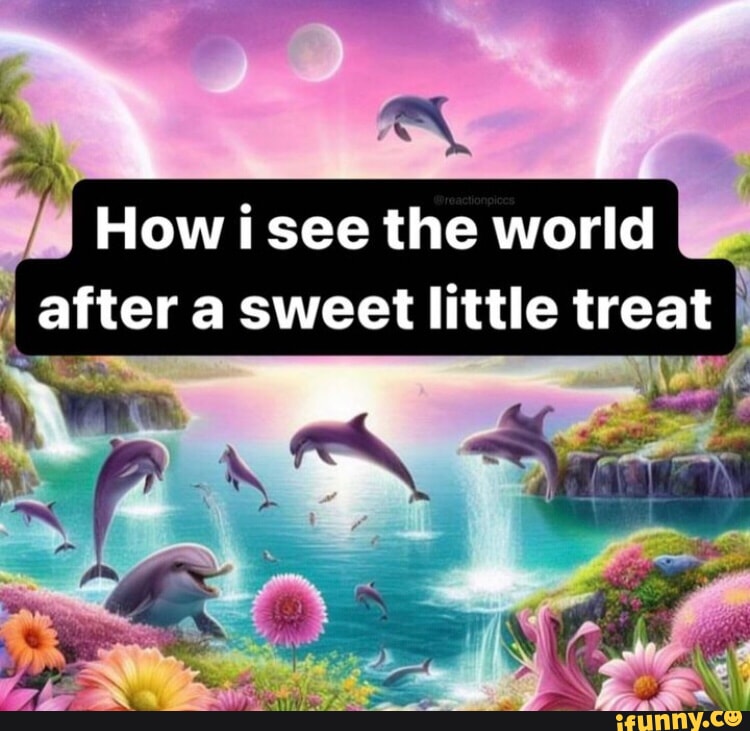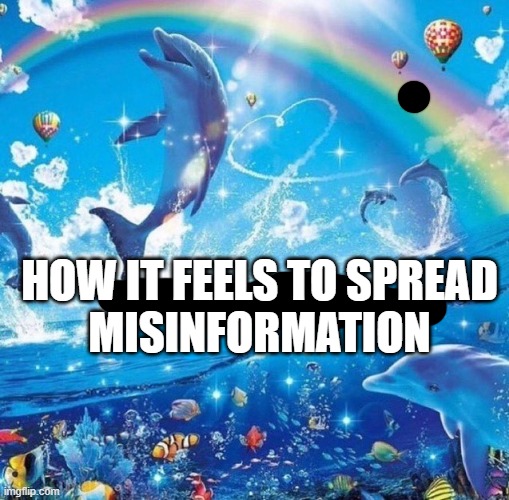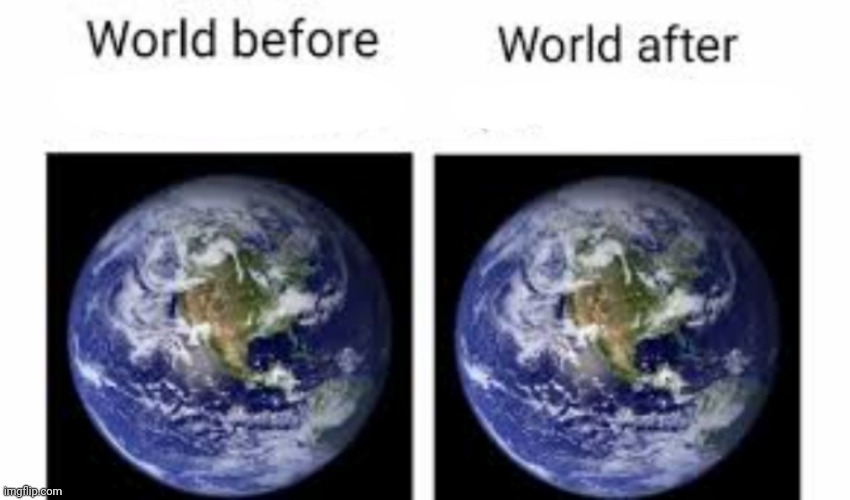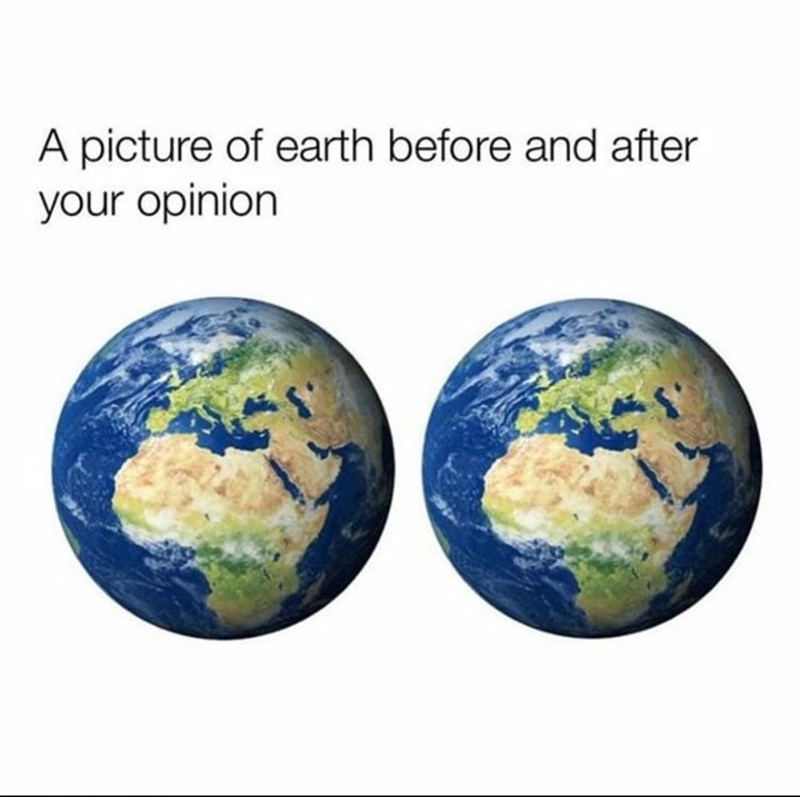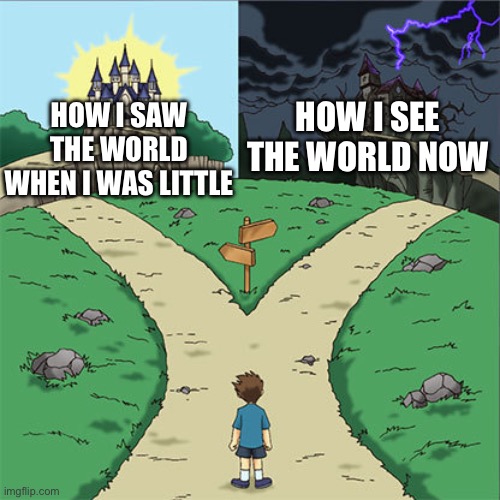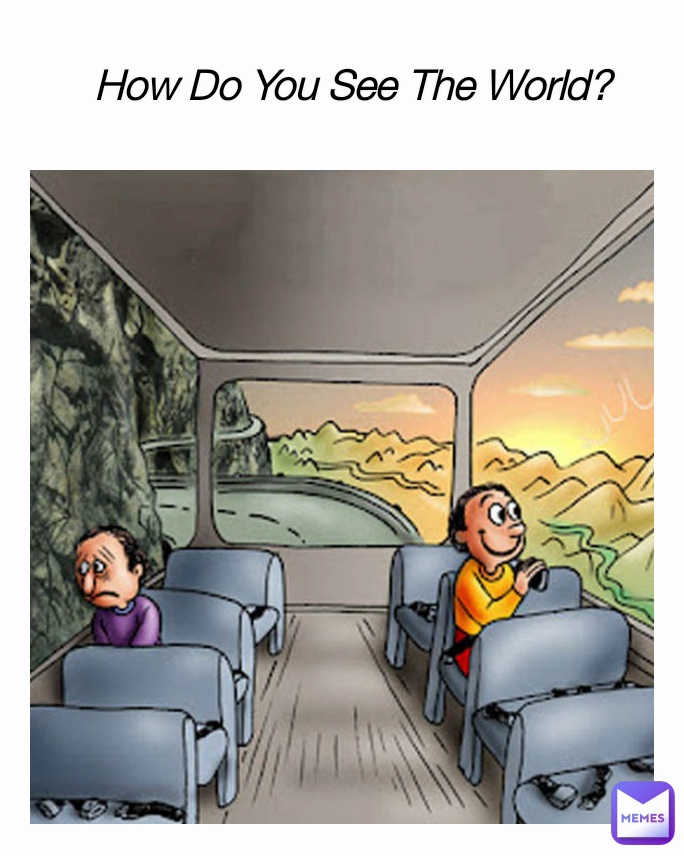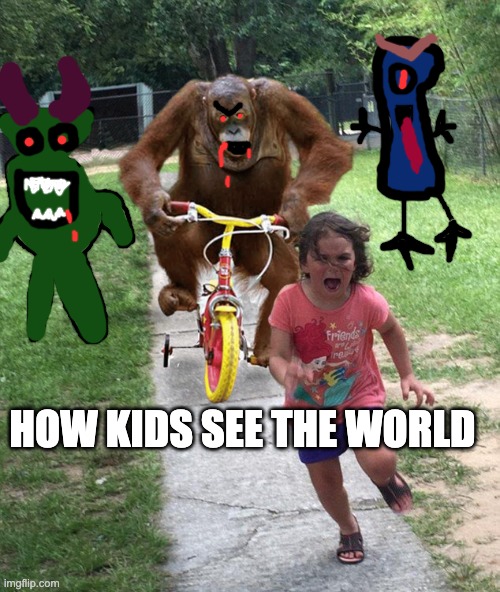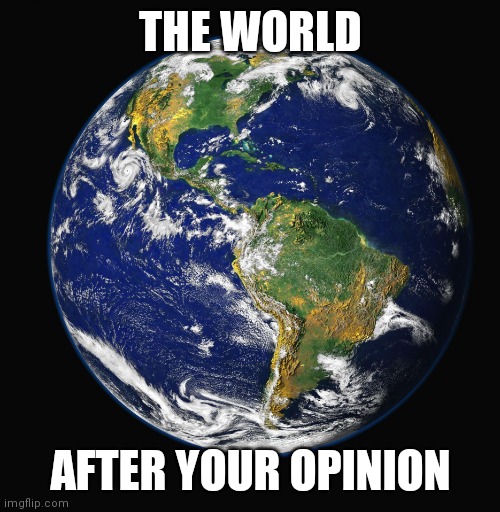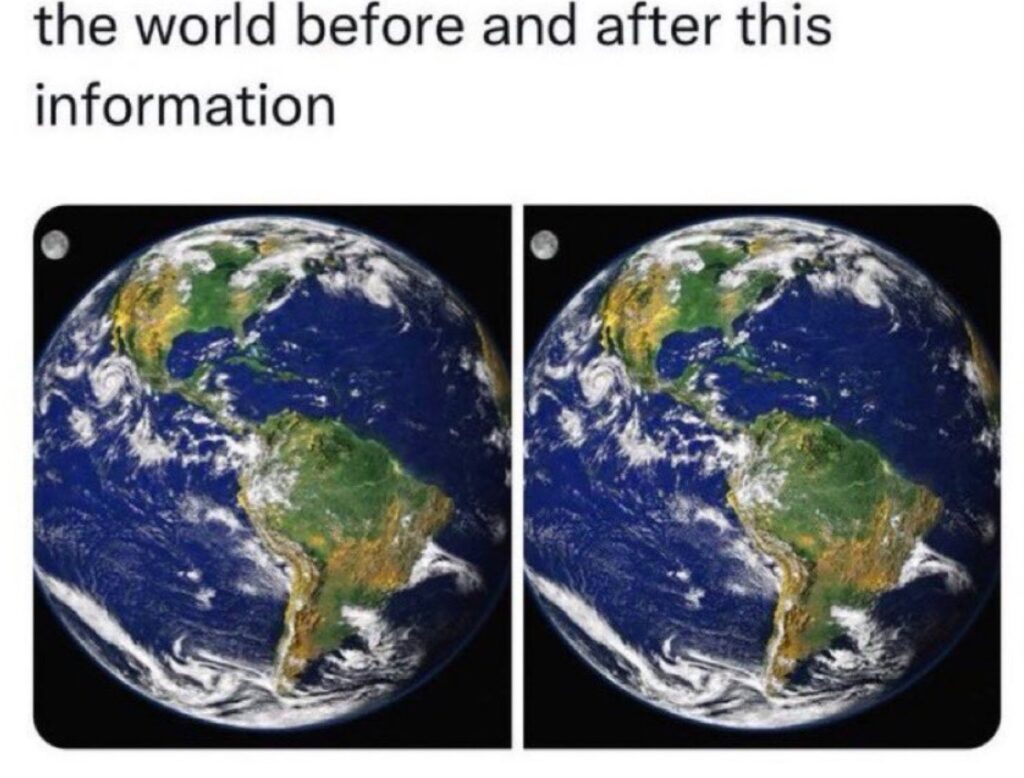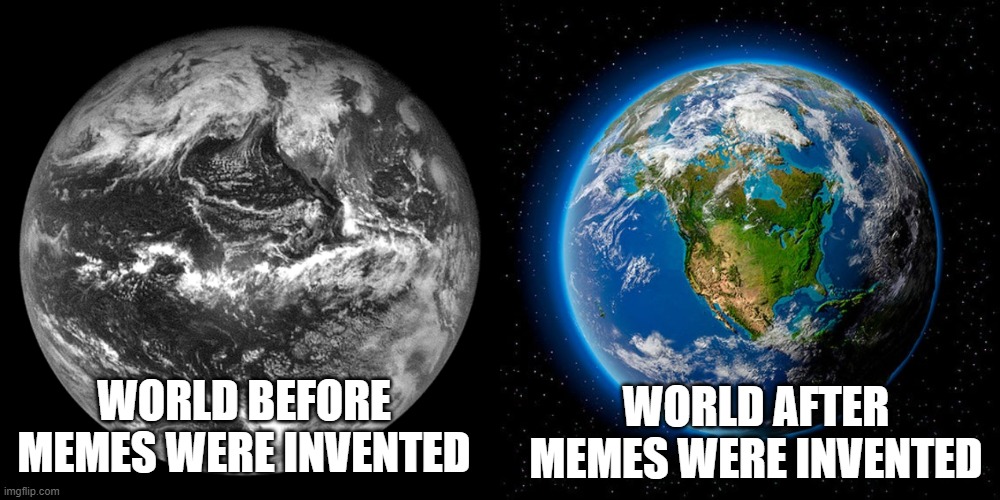How I See The World After Meme

The afternoon sun filters through the dusty blinds, casting stripes across a room filled with stacks of books and half-finished sketches. A lone figure sits hunched over a laptop, the glow illuminating a face etched with a thoughtful calm. A gentle smile plays on her lips as she scrolls through a seemingly endless stream of images, videos, and snippets of text. This isn't mindless browsing; it's a deep dive into the world of memes, a world that has profoundly shaped how she, and perhaps we all, perceive reality.
This article explores how the pervasive influence of internet memes has reshaped one individual's worldview, leading to a more nuanced understanding of communication, culture, and the very nature of information itself.
The Pre-Meme Me
Before the ubiquitous spread of memes, my understanding of the world was, in retrospect, remarkably linear. Information flowed from established sources: news outlets, academic institutions, and published books. My thought patterns were largely influenced by these traditional structures.
I approached information with a certain level of deference, assuming a degree of authority and objectivity, even when presented with differing perspectives. I believed in the power of reasoned argument, logically constructed narratives, and evidence-based conclusions.
Social media, while present, was more a tool for connection than a battleground for ideas. The concept of virality was still relatively new, and the speed at which information could spread was not yet fully understood.
The Meme Floodgates
The shift began gradually, almost imperceptibly. Memes started as simple jokes, often based on shared cultural references or relatable everyday experiences. They were a form of digital inside jokes, creating a sense of community and shared understanding.
But as the internet grew, so did the complexity and reach of memes. They evolved from simple images with text overlays to complex narratives, political statements, and even sophisticated forms of social commentary.
The sheer volume of memes I encountered was overwhelming. Every scroll through social media, every message from friends, was punctuated by these bite-sized pieces of information, humor, and opinion.
Deconstructing Reality, One Meme at a Time
The initial effect was disorienting. Memes, by their very nature, are often reductive, oversimplified, and sometimes even deliberately misleading. They strip away nuance and context, presenting complex issues in easily digestible, often humorous, formats.
But over time, I began to see the power of memes as a tool for deconstruction. They challenged my assumptions, forced me to question established narratives, and exposed the underlying biases in the information I consumed. Consider the "Distracted Boyfriend" meme, for instance. It's a simple, humorous image, yet it speaks volumes about desire, societal expectations, and the ever-present temptation of something new.
This deconstruction wasn't always comfortable. It meant acknowledging the limitations of my own perspective and recognizing the inherent subjectivity in the way information is presented. However, it also opened my mind to new possibilities and alternative ways of understanding the world.
Memes also highlighted the power of collective intelligence. They are often created, shared, and modified by a vast network of individuals, each contributing their own unique perspective and experiences. This collaborative process allows for the rapid evolution of ideas and the emergence of new cultural trends.
The Irony of Truth
Perhaps the most significant impact of memes has been a heightened awareness of irony and satire. Memes often employ irony to expose hypocrisy, challenge authority, and highlight the absurdity of certain situations.
This exposure to ironic and satirical content has made me more critical of the information I consume. I'm now more likely to question the motives behind a particular message and to look for hidden meanings or underlying biases. It made me remember the saying of Voltaire, "It is dangerous to be right when the government is wrong."
I've also become more adept at identifying propaganda and misinformation. Memes can be used as powerful tools for manipulation, and it's crucial to be able to distinguish between genuine humor and malicious intent.
Beyond the Lulz: The Deeper Meaning
While many dismiss memes as frivolous entertainment, I believe they represent a fundamental shift in the way we communicate and process information. They are a reflection of our increasingly fragmented and interconnected world.
Memes force us to engage with complex issues in a concise and engaging way. They can spark conversations, challenge conventional wisdom, and even inspire social change. According to a Pew Research Center study, a significant portion of young people now get their news and information from social media, where memes are a dominant form of communication.
Of course, the reliance on memes also has its drawbacks. The tendency towards oversimplification can lead to misunderstandings and misinterpretations. The rapid spread of misinformation can have serious consequences, as evidenced by the proliferation of fake news during recent elections.
However, I believe that the benefits of memes outweigh the risks. They have democratized information, empowered marginalized voices, and fostered a more critical and engaged citizenry.
Finding Balance
The key, I've learned, is to approach memes with a critical eye and a healthy dose of skepticism. It's important to recognize their limitations and to supplement them with other sources of information.
It's also essential to be mindful of the potential for memes to be used for manipulation and propaganda. We must be vigilant in identifying and debunking misinformation and in promoting responsible online behavior.
Ultimately, the world after memes is a world of heightened awareness, increased skepticism, and a more nuanced understanding of the complexities of communication and culture.
The Future is Meme-Shaped
Looking ahead, I believe that memes will continue to play an increasingly important role in shaping our perceptions of the world. They will become even more sophisticated, incorporating new technologies like artificial intelligence and virtual reality.
We must prepare ourselves for this future by developing the critical thinking skills necessary to navigate the complex and ever-changing landscape of online information. We must teach our children to be discerning consumers of media and to be responsible digital citizens.
The world after memes is a challenging one, but it's also a world of immense opportunity. By embracing the power of memes and by learning to navigate their complexities, we can create a more informed, engaged, and equitable society. As Marshall McLuhan famously said, "The medium is the message," and in the digital age, memes are a powerful part of that medium.
So, the next time you see a meme, don't just laugh it off. Take a moment to consider its underlying message and its potential impact on the world around you. You might be surprised at what you discover.


